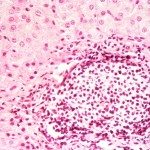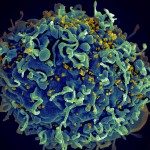The Evolutionary Genomics of RNA Viruses group at Institut Pasteur in Paris is hiring multiple postdoctoral fellows (experimental and bioinformatics) on viral outbreak preparedness and response.
Emerging infectious disease (EID) outbreaks have increased significantly in the past decades, both in terms of size and number of causative pathogens. The unexpected nature, sometimes high case fatality rate, the uncertainty of sources and modes of transmission, and the paucity of medical and non-medical countermeasures make EIDs a threat to global human and animal health.
Our laboratory is planning to develop several experimental and bioinformatics projects primarily focusing on RNA viruses, especially respiratory viruses. The main themes for the projects will be:
Wet lab:
- Direct detection and identification of new pathogens and variants. Development and optimization of virus detection by high throughput sequencing techniques (unbiased/depletion/enrichment/amplicon).
- Indirect detection of new pathogens and variants. High-throughput serological assay development.
- Assessment of virulence. Initial characterization of newly-identified viruses or variants, for example, by in vitro assessment of possible organ tropism using organoids and air-liquid-interface cell cultures, for instance comparing infection in upper versus lower respiratory tract organoids, and by studying pathogenesis in animal models.
- Identification of immune evasion. Implementation of deep mutational scanning for immune evasion prediction for novel viruses/variants.
Dry lab:
- Computational analysis of early laboratory assay and sequence data. Data at the beginning of an outbreak can include one-time assays as well as temporal measurement from hospitalised patients or outpatients, complemented by viral genome sequence and epidemiological data. Analysis of these early data involves computational and statistical expertise, both in the initial response and in ongoing monitoring.
- Bayesian phylodynamic analysis. Development and optimization of virus detection by RNA sequencing (unbiased/depletion/enrichment/amplicon).
- Interactive visualization of phylodynamic results. Design of novel visualization tools, especially visualizing beyond merely the geographic spread of a pathogen but other related data layers (border closures, flight data, climate data, mosquito prevalence, etc.), while still ensuring smooth animations and flexible options to inspect the various data layers.
Profiles:
Applicants should hold a PhD in fields relevant to the project (such as virology, evolutionary or molecular biology, computational biology, phylodynamics).
Scientific rigor, organizational skills, high motivation, English proficiency and ability to work collaboratively in an interdisciplinary environment are essential.
The lab provides a stimulating and multicultural environment with access to high-end instrumentation and close collaborations with Institut Pasteur and the Pasteur Network teams. The lab also hosts the French National Reference Center for viruses of respiratory infections for Northern France.
The potential research projects are not necessarily restricted to the listed themes and initiatives that fit or complement our laboratory expertise can be discussed.
The positions are for up to four years., and some positions are offered in the context of the upcoming EU-funded (HERA) DURABLE program, focused on preparedness to the increasing complexity of EID threats by coordinating efforts of multiple European laboratories.
To apply:
Candidates should send in a single pdf: a cover letter including a brief description of their scientific achievements and research interests, their CV and contact information for 2 references to etienne.simon-loriere@pasteur.fr.




